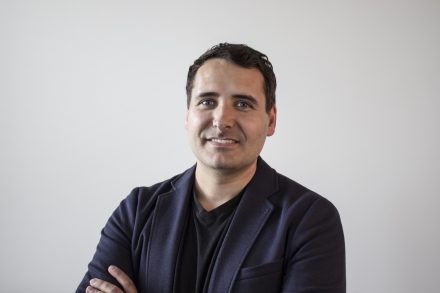1. Just recently, the current batch of TechFounders presented themselves to more than 100 VCs, business angels and industry partners. Which of the 14 startups made a particular impact on the audience?
You would have to ask the audience. After all, we guided and intensely coached all of the startups for more than 20 weeks. That builds strong relationships and makes you extremely proud of all of your “pupils.” Seeing how much our teams develop in such a short period of time never ceases to amaze me.
Strongest growth in industrial IoT
2. Cleantech, fintech, robotics — which technology trend do you currently find most intriguing? Why?
In the context of the intense advancement of digitalization, I see the strongest growth in the field of industrial IoT. A lot of processes can still be digitalized. So far, only a tiny fraction of machines and sensors have been networked and use data in a meaningful way. Blockchain technology did not stop at the industrial sector and we can expect a lot more business models in this area. Of course, this industry is also fiercely competitive.
3. TechFounders has major industry partners on board such as BMW, Bosch, Festo, Linde and Miele — why do you think it is important for startups and corporations to cooperate?
It is mainly about getting co-development started that is of benefit to both parties. Startups are paid for further development of their technology, and corporations gain access to that technology before their competitors. It’s a win-win situation. Roughly 50 percent of all startups that complete the TechFounders program continue to work with one of our partners afterwards, which allows them to finance growth.
Getting results by defining use cases
4. Many large companies are now creating their own accelerator programs with hopes of boosting innovation — but it doesn’t always pay off. Which prerequisites does a program need to fulfil to be successful and beneficial for everyone involved?
It is a matter of delivering results. That works best when you define precise use cases with startups. In these cases, they are able to demonstrate what their technology can do and then establish a (development) partnership. A startup can then become a co-development partner or supplier. Getting your own program going that only deals with the C-level and staff positions often does little more than serve as marketing and entertainment for the strategy department.
So it can make a great deal of sense to work together with an external partner that runs the accelerator and introduces additional corporate partners into the format. This not only divides up the costs, but also means more startups apply.
Moreover, startups that might be interesting for another corporate partner, might also add value to your own company. So it is important to keep all of the partners’ interests in mind. That is why we take care to not include rivals as partners in the program at TechFounders.
5. Munich prides itself as a tech center. How would you assess Munich as a startup location for tech-oriented startups? What do you think is positive? What is missing in your opinion?
After Berlin, Munich has the most startups in Germany. There’s a reason: we have excellent universities with a strong focus on technology. Not only are startups able to find the right employees here, many new startups also have their roots in universities.
Moreover, the Munich airport connects to all internationally relevant airports, which makes it an ideal location for global business. The industrial sector in particular is strongly represented in southern Germany. The numerous hidden champions also collaborate with startups extremely well. These companies are often family-run with a long view and entrepreneurial approach, which makes them ideal partners for long-term cooperation.
Nonetheless, living costs in Munich are relatively high, which naturally entails higher capital requirements. But that does have an advantage: it separates the wheat from the chaff.




